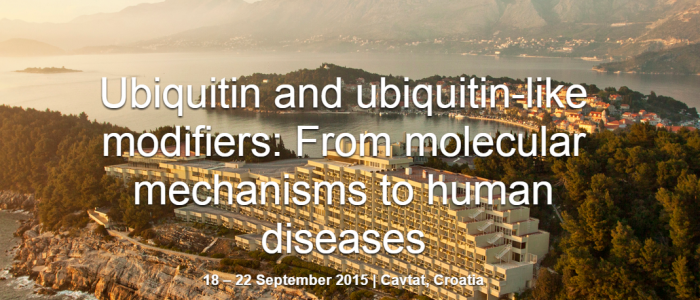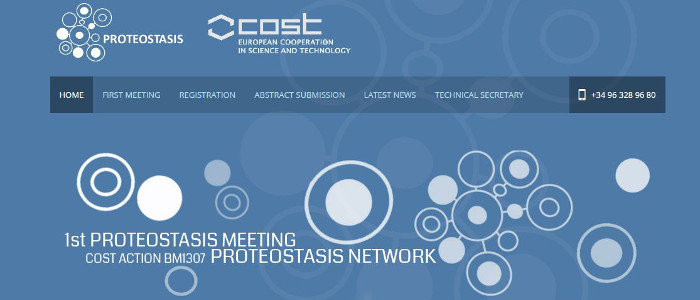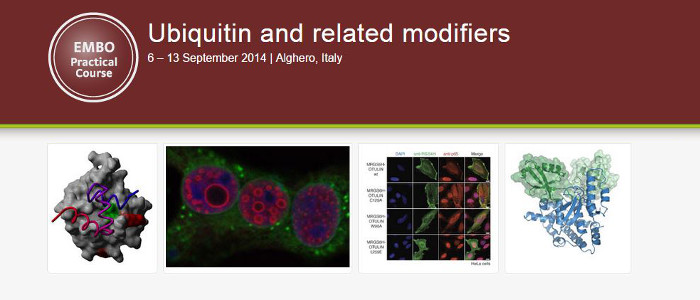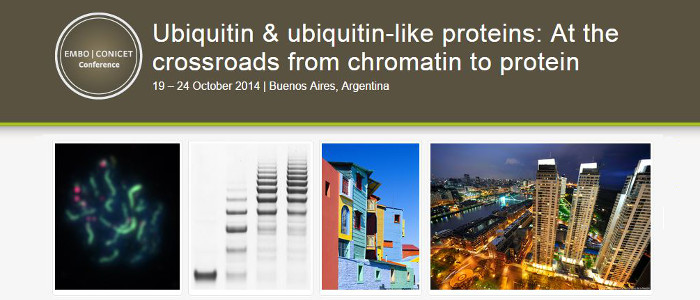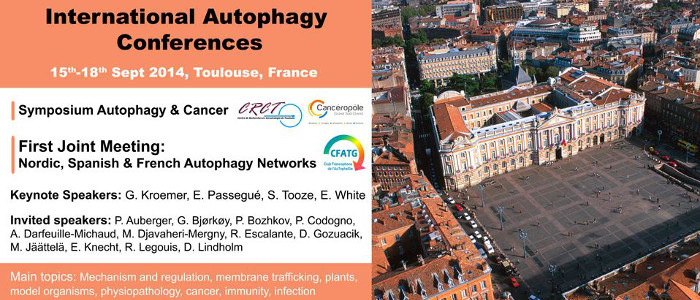PROTEOSTASIS co-organizes this conference in collaboration with EMBO. The meeting organizers are Dr. Ivan Dikic (member of WG2) and Janos Terzic (member of WG2). The co-organizers are Frauke Melchior (member of WG3) and Ron Hay (member of WG3). This meeting centers on Ubiquitin and Ubiquitinlike proteins from molecular mechanisms to human diseases, which are priority […]
Science+ Meeting
Science+ is a meeting where different career options that exist in the field of science, and especially in the European context are discussed. Presentations and panel discussions are delivered by researchers and other professionals with extensive experience in research, journalism and scientific publishing, corporate R & D, promotion and funding of R & D. Science […]
The regulation of aging and proteostasis
Homeostasis is critical for cellular and organismal functionality, survival, and lifespan. Organisms respond to environmental insults by activating transcriptional and post-transcriptional programs, which promote protein homeostasis (proteostasis). Proteostasis is regulated by several transcription factors including the heat shock factors (HSF), and the forkhead (FOXO) factors as well as by the unfolded protein response (UPR) and […]
EMBO Workshop: The regulation of aging and proteostasis
Homeostasis is critical for cellular and organismal functionality, survival, and lifespan. Organisms respond to environmental insults by activating transcriptional and post-transcriptional programs, which promote protein homeostasis (proteostasis). Proteostasis is regulated by several transcription factors including the heat shock factors (HSF), and the forkhead (FOXO) factors as well as by the unfolded protein response (UPR) and […]
Bi-annual meeting of the « Cellular Proteolysis » group of the French Society for Biochemistry and Molecular Biology
The objective of this meeting is to follow scientific developments in cellular proteolysis in both physiological and pathological contexts. In all living organisms, proteins are produced during a process called “protein synthesis” and degraded in a process called “proteolysis”. These cellular mechanisms contribute to the continuous renewal of certain proteins in the fine regulation of […]
Biochemical Basis of Healthy Ageing (CO-ORGANIZED BY PROTEOSTASIS)
The bi-annual summer school of the Society for Free Radical Research – Europe in cooperation with the International Union of Biochemistry and Molecular Biology and COST actions CM1001, PROTEOSTASIS and EU-ROS was held September 22-28, 2014 on the Greek island Spetses. The central topic of this summer school was BIOCHEMICAL BASIS OF HEALTHY AGEING Website: […]
1st PROTEOSTASIS Workshop (2nd MC Meeting, 1st WG Meeting)
The 1st PROTEOSTASIS MEETING will take place in VALENCIA at the Centro de Investigación Principe Felipe from Wednesday 5 to Friday 7 November 2014. It will be a first face-to-face 3-days meeting among participants in the COST PROTEOSTASIS NETWORK to integrate research on intracellular proteolysis pathways in health and disease. The main aim of the […]
EMBO practical course on Ubiquitin and related modifiers (CO-ORGANIZED BY PROTEOSTASIS)
The main objective of this EMBO Practical Course is to present state-of-the-art methodology for the analysis of ubiquitination and the regulation of proteins by the reversible attachment of ubiquitin-related modifiers (UBLs). The course will be targeted at young scientists who are unfamiliar with this field. It will involve practical experiments demonstrating the use of conjugating […]
EMBO Ubiquitin Meeting
Ubiquitin (Ub) and Ub-like modifiers (Ubls) are small proteins that upon covalent attachment regulate protein functions. Because of the general role of Ub/Ubls in basically every cellular pathway and their key functions in disease onset, our goal is to strengthen bonds with other research fields. Therefore, we bring leading scientists from different research fields together […]
First Joint Meeting of “Nordic, Spanish & French (NSF) Autophagy Networks”
Autophagy is a cellular process aimed to remove or recycle intracellular components. It is an ubiquitous and constitutive pathway of cellular catabolism highly conserved in eukaryotes. It was identified as a result of the discovery of the lysosome by Christian de Duve in the early 60s (Nobel Prize in Medicine and Physiology in 1974 for […]

